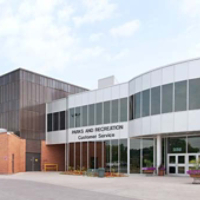Quick Facts
![]()
How do we do it?
Four key HVAC technologies to support electrification
Heat pumps
Heat pumps are a key enabler for decarbonization because they can use electricity to heat or cool from a single unit.
Heat pumps are up to 3 times more efficient than other forms of electrified heating. 180 million heat pumps were used for heating in 2020
The International Energy Agency (IEA) estimates heat pumps could satisfy 90% of global heating needs with a lower carbon footprint than gas-fired condensing boilers.
Hybrid systems
These HVAC systems combine gas and electric heating, switching between the two for the highest efficiency based on outdoor conditions.
Heat recovery
One of the most efficient ways to heat is to recover waste heat from other systems and reuse it to heat the building.
An estimated 20 to 50% of industrial energy input is lost as waste heat.
Thermal energy storage
Store and dispatch waste heat like a battery to deliver heating and cooling. Thermal energy storage increases the utilization of renewable energy by up to 50%.
![]()
Electrification: A solution for every building type
Common in many large buildings, electric chillers can also serve as heat pumps or provide heat recovery.
Variable Refrigerant Flow (VRF) heat pump and heat recovery systems
VRF is an efficient, versatile, all-electric zoned heating and cooling solution. Packaged units and split systems. These units, with integrated heat pumps, are efficient and effective for many small and mid-sized commercial buildings.
Packaged units and split systems
These units, with integrated heat pumps, are efficient and effective for many small and mid-sized commercial buildings.
Storage source heat pump systems
Energy storage is typically used as a financial tool to reduce energy costs and can also store energy to be used for heating and cooling .
Commercial Domestic Hot Water
A highly efficient, all-electric heat pump water heater system designed to produce high volume domestic hot water (DHW) for commercial facilities.
Trane’s total-system design approach
There are many options to consider for electrification. Trane experts take a holistic view of a building’s systems to design an electrification plan that meets the owner’s sustainability goals, budget and building requirements.





